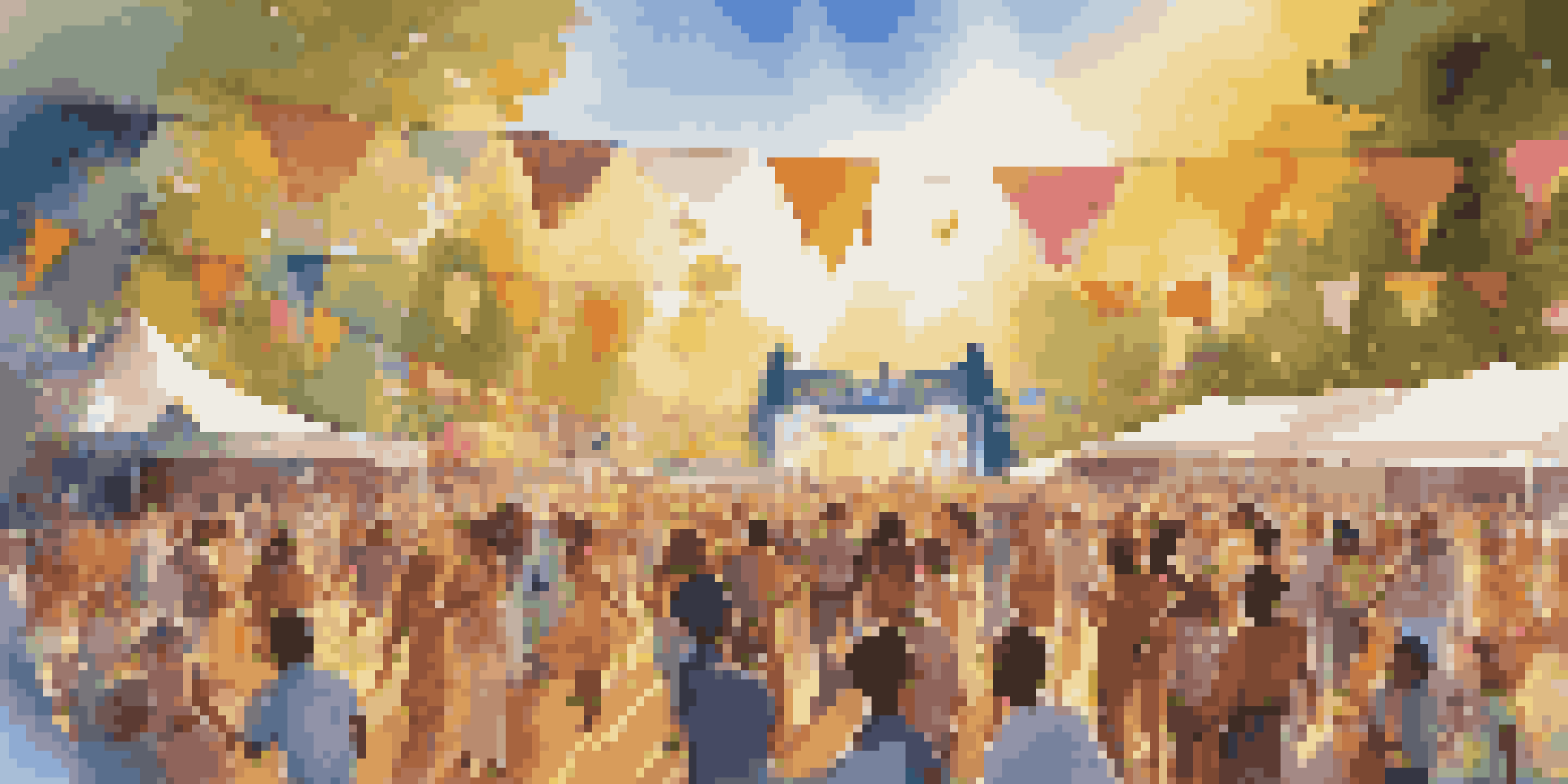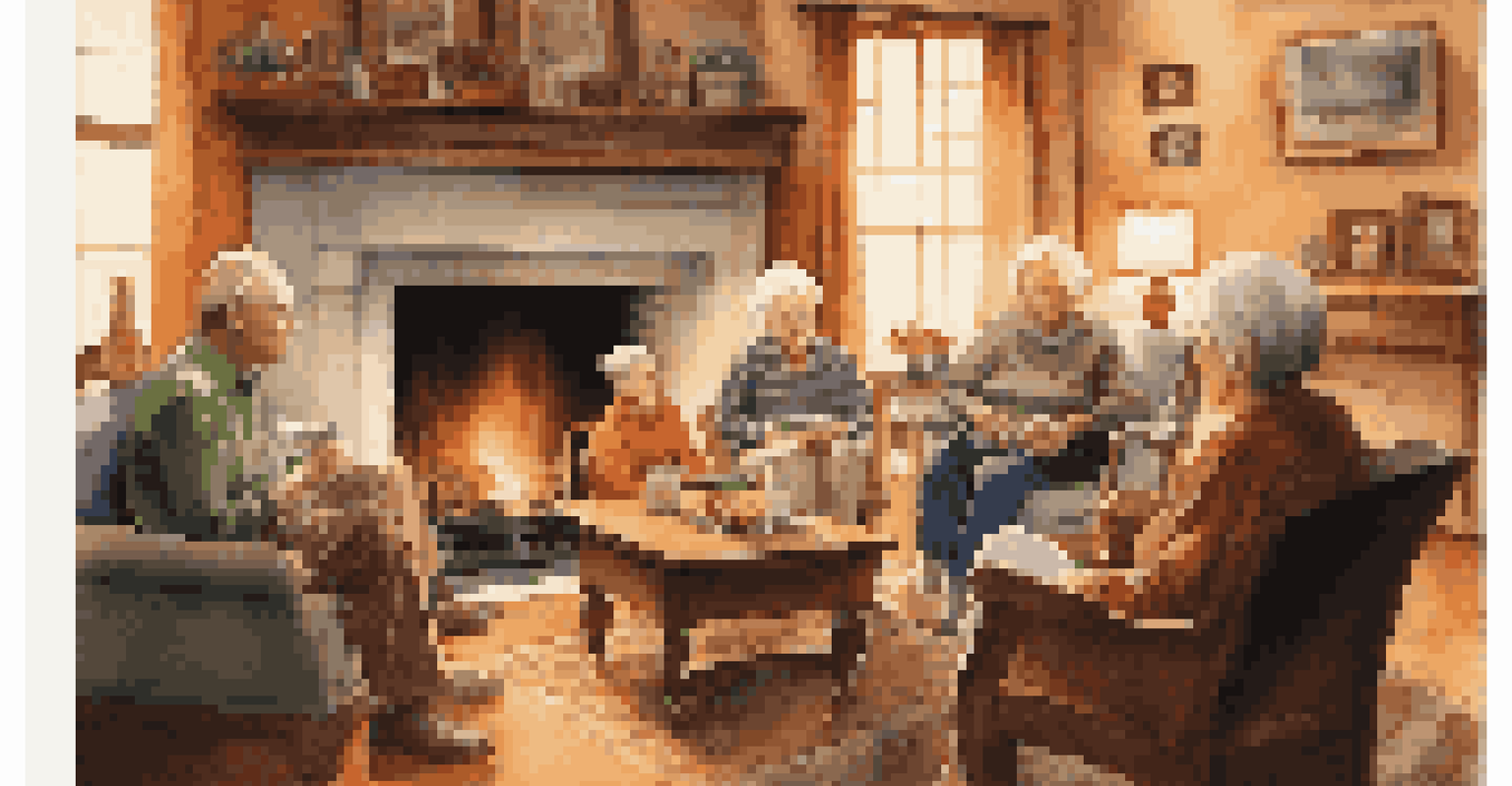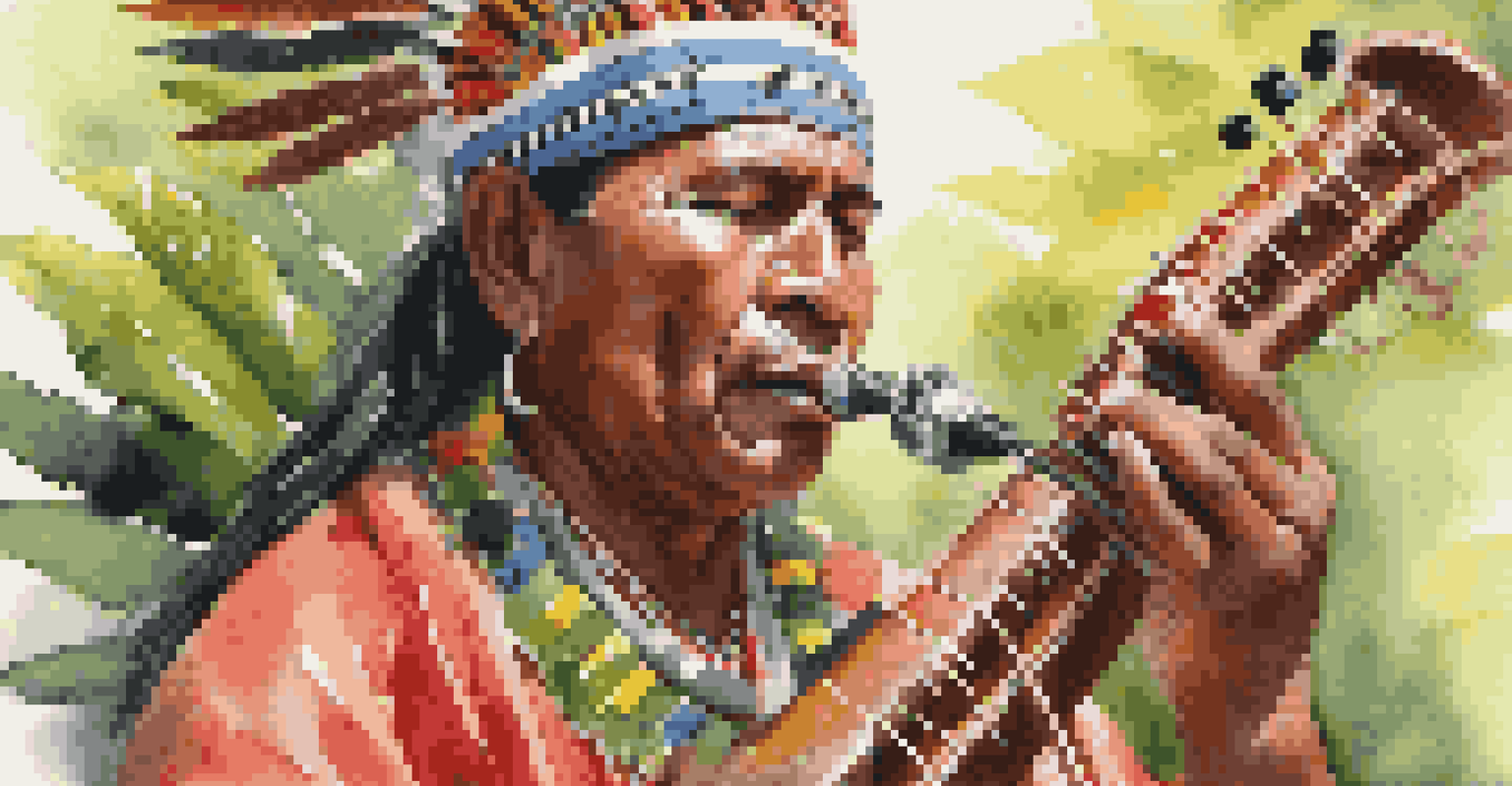Music and Memory: Preserving Community Narratives Through Song

The Power of Music in Shaping Community Identity
Music has an incredible ability to shape our identities and connect us to our roots. In communities around the world, songs tell stories that reflect historical events, cultural practices, and collective memories. These musical narratives act as time capsules, preserving the essence of a community for future generations.
Music can change the world because it can change people.
For instance, folk songs often encapsulate the struggles and triumphs of a people, serving as reminders of their journey. When we hear these tunes, we are not just listening; we are experiencing a deep connection to our shared past. This bond is vital for fostering community pride and continuity.
Moreover, music provides a platform for marginalized voices, allowing them to share their stories and experiences. By embracing these narratives, communities can create a richer, more inclusive identity that honors all its members.
Songs as Tools for Memory and Remembrance
Songs often serve as powerful mnemonic devices, helping individuals recall significant events and emotions. The melodies and lyrics can trigger vivid memories, making the past feel alive and accessible. This phenomenon is particularly evident in older generations, who may find comfort in the songs of their youth.

For example, during family gatherings, singing old tunes can evoke shared memories, laughter, and even tears. These moments not only strengthen family bonds but also reinforce a collective memory that is vital to a community's sense of belonging. Music becomes a bridge connecting past and present.
Music Shapes Community Identity
Through storytelling and shared experiences, music fosters a deep connection to cultural roots and community pride.
Furthermore, during times of grief or transition, songs can provide solace and a sense of continuity. Communities often turn to music to commemorate lost loved ones, ensuring that their stories and legacies remain alive through song.
Cultural Preservation Through Traditional Songs
Traditional songs often encapsulate the history and values of a community, acting as vessels for cultural preservation. These songs keep language, customs, and traditions alive, especially in cultures facing the threat of globalization. As younger generations embrace the digital age, traditional music can spark interest in heritage.
Where words leave off, music begins.
Take, for example, Indigenous songs that tell stories of land, ancestors, and spiritual beliefs. These songs not only maintain the community's identity but also educate outsiders about their rich history. When performed, they invite audiences to participate in a shared experience, fostering respect and understanding.
Engaging with traditional music can also empower communities to reclaim their narratives, ensuring that their voices are heard. This cultural revival is essential for maintaining diversity in a rapidly homogenizing world.
Community Events: Celebrating Identity Through Music
Community events, such as festivals and concerts, play a vital role in celebrating local music traditions. These gatherings create spaces for people to come together, share their stories, and enjoy the art of song. The atmosphere is often filled with joy, laughter, and a sense of belonging that enhances community ties.
For instance, a local music festival might feature a mix of traditional and contemporary artists, reflecting the evolution of community narratives. These events not only entertain but also educate attendees about the significance of the songs being performed. They serve as a living archive of the community's history.
Songs Aid Memory and Healing
Music acts as a powerful tool for recalling memories and providing solace during times of grief and transition.
Moreover, such events encourage collaboration among artists and community members, fostering creativity and innovation. As musicians draw inspiration from their surroundings, they contribute to a dynamic musical landscape that continues to evolve and inspire.
Modern Technology: Amplifying Community Voices
In today’s digital age, technology plays a crucial role in preserving and sharing community narratives through music. Social media platforms and streaming services allow artists to reach wider audiences, amplifying their stories far beyond local borders. This democratization of music has opened doors for diverse voices to be heard.
For example, independent artists can share their songs online, telling their community stories while connecting with listeners from around the globe. This not only fosters a sense of solidarity but also encourages cultural exchange, enriching the global music scene. The impact of a single song can now resonate widely, promoting understanding and appreciation of different cultures.
Furthermore, digital archives and online repositories are emerging as valuable resources for preserving traditional music. Communities can document their song heritage, ensuring that future generations can learn and engage with their musical past.
The Role of Music in Social Movements
Music has long been a catalyst for social change, rallying communities around shared causes and struggles. Songs of protest and resistance can inspire action, uniting people in their fight for justice. When communities come together through music, they amplify their voices, drawing attention to critical issues.
Take, for instance, the civil rights movement in the United States. Songs like 'We Shall Overcome' became anthems of hope and resilience, encapsulating the collective spirit of a community fighting for equality. These powerful lyrics and melodies motivate individuals to join the cause, creating a sense of urgency and solidarity.
Technology Amplifies Cultural Voices
Digital platforms enable diverse artists to share their community narratives, promoting cultural exchange and preservation.
Moreover, music can serve as a safe space for healing and reflection during challenging times. By expressing shared emotions through song, communities can process their experiences and foster a sense of unity, which is crucial for driving meaningful change.
Future Directions: Evolving Community Narratives Through Music
As we look to the future, the evolution of community narratives through music will continue to unfold. New generations of artists are blending traditional sounds with modern influences, creating fresh interpretations of their heritage. This fusion not only honors the past but also speaks to the present, resonating with diverse audiences.
For instance, hip-hop artists often draw inspiration from traditional music styles, weaving them into their lyrics and beats. This not only revitalizes cultural narratives but also makes them relevant in today's fast-paced world. By embracing innovation, communities can keep their stories alive in a way that captivates and engages younger listeners.

Ultimately, the journey of music and memory is ongoing. By nurturing creativity and collaboration, communities can ensure that their narratives continue to evolve, enriching the cultural tapestry of our society for years to come.